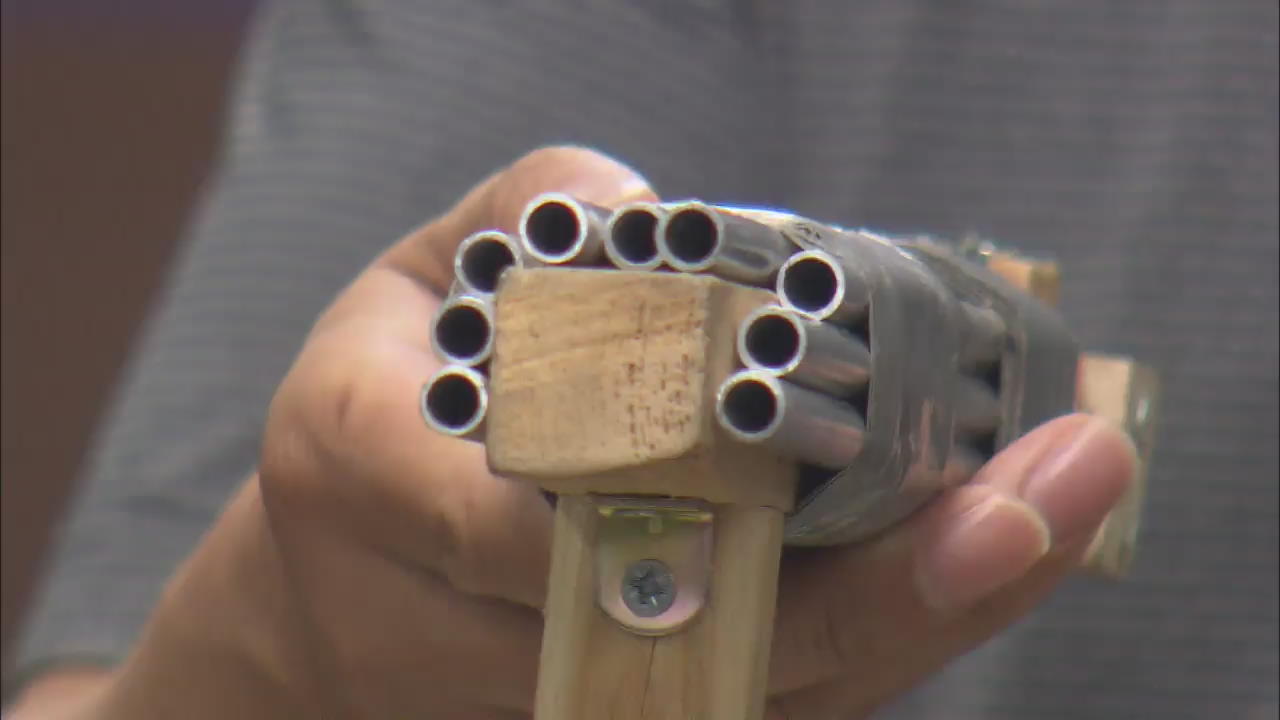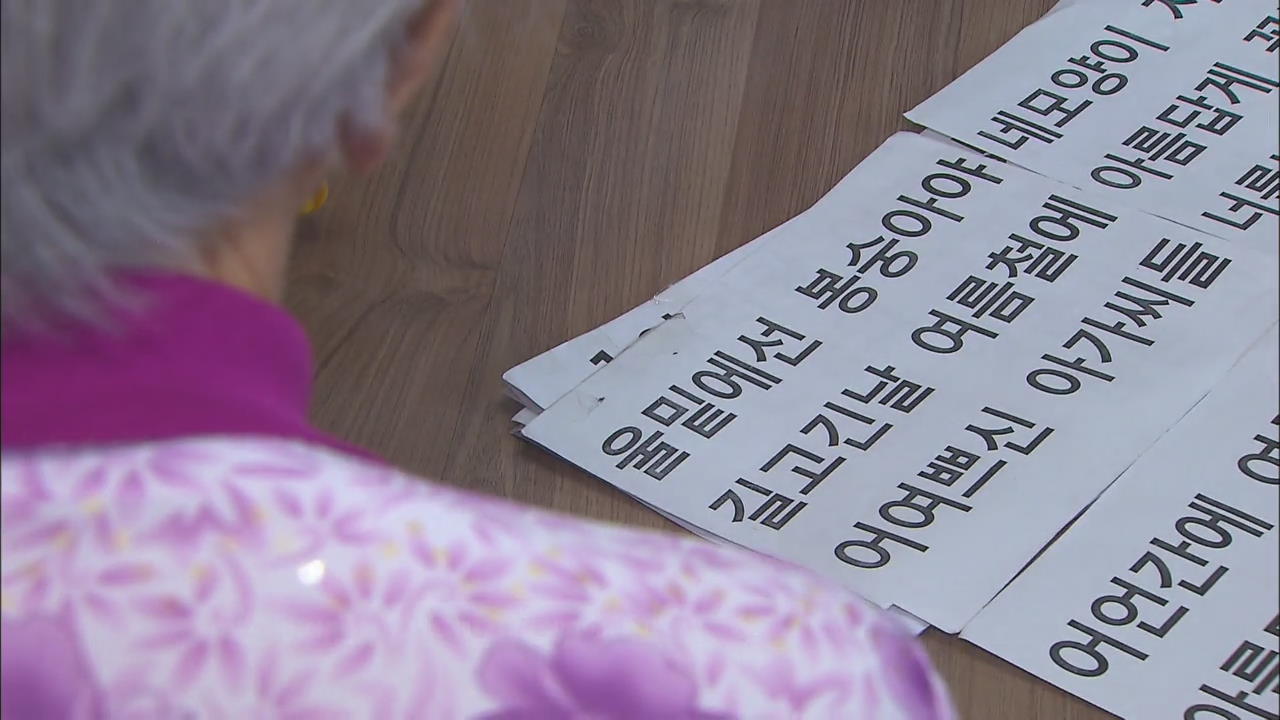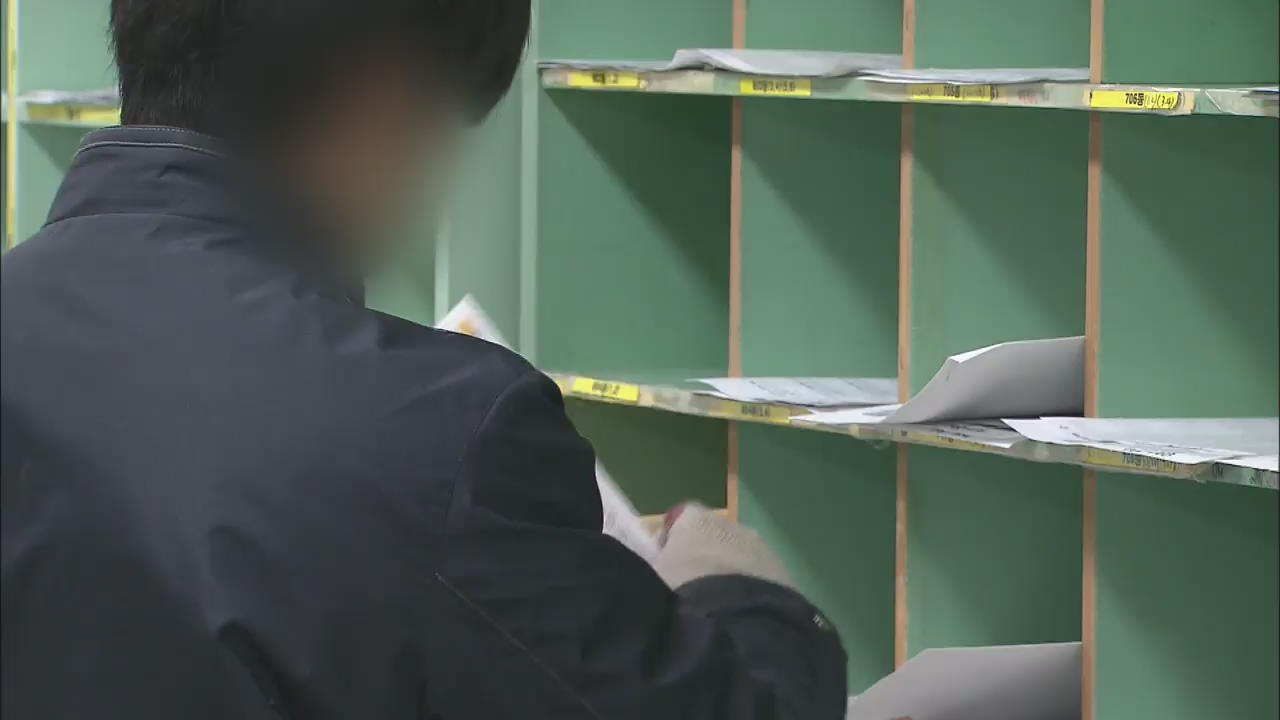Homemade Weapons
입력 2017.06.15 (14:19)
수정 2017.06.15 (14:46)
읽어주기 기능은 크롬기반의
브라우저에서만 사용하실 수 있습니다.
[Anchor Lead]
Authorities say the suspect in the Yonsei University explosion arrested on Wednesday made the explosive device at home. A growing number of crimes involve homemade firearms and bombs but the solution to this trend appears elusive.
[Pkg]
A middle school was hit by a butane gas terror attack in 2015. In 2016, a shooting incident near Mount Opae Tunnel resulted in three casualties. Both cases involved homemade firearms or explosives. The suspects testified that they planned the crimes by watching Internet content. The suspect in the latest Yonsei University explosion also said that he gathered ideas from news reports of a terror incident in Russia. He said that he made the explosive device at his boarding house based on what he knew about the subject. The bomb was rudimentary at best, but if it had properly gone off, it could have led to severe casualties. Authorities have stepped up crackdowns since January last year as copycat crimes were being repeated, spurred by TV and the Internet. Anyone posting guidelines online on how to produce guns or explosives is subject to a maximum 2 year jail sentence. However, these contents are still easily found not only on foreign websites, but on major domestic portals as well.
[Soundbite] Prof. Kwack Dae-Gyung(College of Police Administration, Dongguk Univ.) : "We need help from civic and parents' groups, as well as stronger education and awareness of the dangers and risks."
More regulations also appear necessary to keep records of people purchasing sensitive materials that can be used in manufacturing explosives.
Authorities say the suspect in the Yonsei University explosion arrested on Wednesday made the explosive device at home. A growing number of crimes involve homemade firearms and bombs but the solution to this trend appears elusive.
[Pkg]
A middle school was hit by a butane gas terror attack in 2015. In 2016, a shooting incident near Mount Opae Tunnel resulted in three casualties. Both cases involved homemade firearms or explosives. The suspects testified that they planned the crimes by watching Internet content. The suspect in the latest Yonsei University explosion also said that he gathered ideas from news reports of a terror incident in Russia. He said that he made the explosive device at his boarding house based on what he knew about the subject. The bomb was rudimentary at best, but if it had properly gone off, it could have led to severe casualties. Authorities have stepped up crackdowns since January last year as copycat crimes were being repeated, spurred by TV and the Internet. Anyone posting guidelines online on how to produce guns or explosives is subject to a maximum 2 year jail sentence. However, these contents are still easily found not only on foreign websites, but on major domestic portals as well.
[Soundbite] Prof. Kwack Dae-Gyung(College of Police Administration, Dongguk Univ.) : "We need help from civic and parents' groups, as well as stronger education and awareness of the dangers and risks."
More regulations also appear necessary to keep records of people purchasing sensitive materials that can be used in manufacturing explosives.
■ 제보하기
▷ 카카오톡 : 'KBS제보' 검색, 채널 추가
▷ 전화 : 02-781-1234, 4444
▷ 이메일 : kbs1234@kbs.co.kr
▷ 유튜브, 네이버, 카카오에서도 KBS뉴스를 구독해주세요!
- Homemade Weapons
-
- 입력 2017-06-15 14:20:19
- 수정2017-06-15 14:46:09

[Anchor Lead]
Authorities say the suspect in the Yonsei University explosion arrested on Wednesday made the explosive device at home. A growing number of crimes involve homemade firearms and bombs but the solution to this trend appears elusive.
[Pkg]
A middle school was hit by a butane gas terror attack in 2015. In 2016, a shooting incident near Mount Opae Tunnel resulted in three casualties. Both cases involved homemade firearms or explosives. The suspects testified that they planned the crimes by watching Internet content. The suspect in the latest Yonsei University explosion also said that he gathered ideas from news reports of a terror incident in Russia. He said that he made the explosive device at his boarding house based on what he knew about the subject. The bomb was rudimentary at best, but if it had properly gone off, it could have led to severe casualties. Authorities have stepped up crackdowns since January last year as copycat crimes were being repeated, spurred by TV and the Internet. Anyone posting guidelines online on how to produce guns or explosives is subject to a maximum 2 year jail sentence. However, these contents are still easily found not only on foreign websites, but on major domestic portals as well.
[Soundbite] Prof. Kwack Dae-Gyung(College of Police Administration, Dongguk Univ.) : "We need help from civic and parents' groups, as well as stronger education and awareness of the dangers and risks."
More regulations also appear necessary to keep records of people purchasing sensitive materials that can be used in manufacturing explosives.
Authorities say the suspect in the Yonsei University explosion arrested on Wednesday made the explosive device at home. A growing number of crimes involve homemade firearms and bombs but the solution to this trend appears elusive.
[Pkg]
A middle school was hit by a butane gas terror attack in 2015. In 2016, a shooting incident near Mount Opae Tunnel resulted in three casualties. Both cases involved homemade firearms or explosives. The suspects testified that they planned the crimes by watching Internet content. The suspect in the latest Yonsei University explosion also said that he gathered ideas from news reports of a terror incident in Russia. He said that he made the explosive device at his boarding house based on what he knew about the subject. The bomb was rudimentary at best, but if it had properly gone off, it could have led to severe casualties. Authorities have stepped up crackdowns since January last year as copycat crimes were being repeated, spurred by TV and the Internet. Anyone posting guidelines online on how to produce guns or explosives is subject to a maximum 2 year jail sentence. However, these contents are still easily found not only on foreign websites, but on major domestic portals as well.
[Soundbite] Prof. Kwack Dae-Gyung(College of Police Administration, Dongguk Univ.) : "We need help from civic and parents' groups, as well as stronger education and awareness of the dangers and risks."
More regulations also appear necessary to keep records of people purchasing sensitive materials that can be used in manufacturing explosives.
이 기사가 좋으셨다면
-
좋아요
0
-
응원해요
0
-
후속 원해요
0

















이 기사에 대한 의견을 남겨주세요.